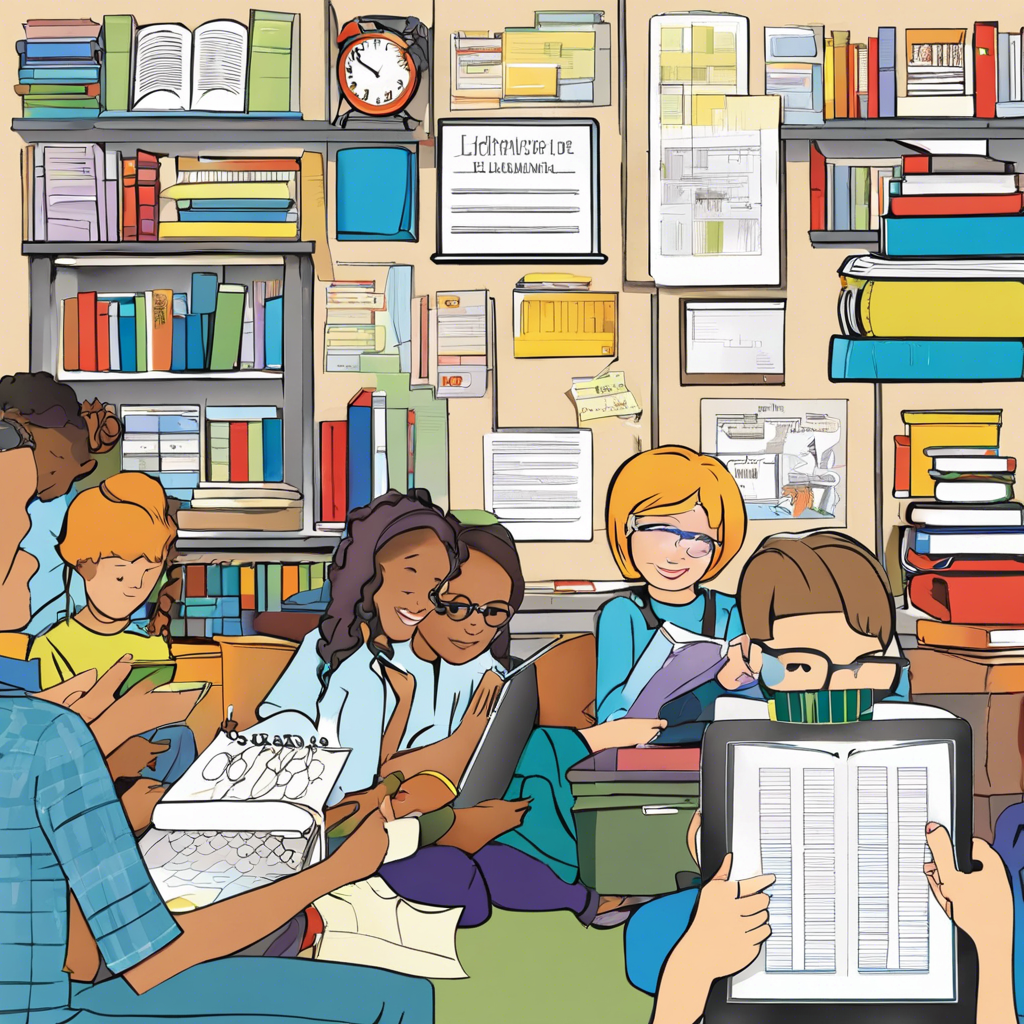Exploring personalized learning’s efficacy in special education, enhancing student engagement and outcomes through tailored approaches.
Personalized learning plans have emerged as a promising approach in special education, offering a dynamic and tailored strategy to cater to the unique needs of each student. This method involves creating a customized learning experience, ensuring that students with varying abilities and learning styles receive the support they need to succeed. By embracing flexibility and adaptability, educators can design learning paths that foster engagement, improve academic outcomes, and empower students to reach their full potential.
The inclusion of personalized learning plans in special education represents a paradigm shift. It moves away from a one-size-fits-all approach, which often fails to accommodate the diverse learning requirements of students with disabilities or special needs. This article delves into the concept of personalized learning, its implementation strategies, and the transformative impact it can have on special education classrooms.
Understanding Personalized Learning in Special Education
Personalized learning in special education involves a student-centered approach, where the curriculum is adapted to meet individual needs and learning styles. This approach leverages technology and various instructional methods to provide customized learning experiences for each student.
Technology as an Enabler
Technology plays a pivotal role in facilitating personalized learning. Educational software and online platforms offer interactive and adaptive learning experiences, allowing students to work at their own pace. For example, platforms like ABC Learning provide personalized instruction, ensuring that students receive targeted support based on their proficiency levels.
Benefits of Personalized Learning
The benefits of personalized learning are numerous. Firstly, it fosters student engagement by providing content that aligns with their interests and abilities. Additionally, students with special needs often require varying levels of support in different subject areas, and personalized learning plans can address these unique requirements. This approach also empowers students to take ownership of their learning, building confidence and self-advocacy skills.
Promoting Student Agency
–
Students learn to set goals and monitor their progress, becoming active participants in their educational journey.
–
This sense of agency extends beyond the classroom, fostering self-reliance and problem-solving skills applicable in various life contexts.
Implementing Personalized Learning Plans
Implementing personalized learning plans requires careful planning and collaboration between educators, students, and sometimes parents. Here’s a structured approach to putting this strategy into practice:
Assessment and Goal Setting
The process begins with a comprehensive assessment of each student’s abilities, learning style, and areas of interest. Educators can then set individualized goals, ensuring that the learning objectives are relevant, achievable, and aligned with the student’s potential. For instance, Special Needs Education highlights the importance of individual assessments in tailoring instruction.
Curriculum Adaptation
Once the goals are established, educators modify the curriculum to align with the student’s learning profile. This may involve adapting the pace, content, or teaching methods to suit individual needs. For example, a student with strong visual learning skills might benefit from more graphic-oriented lessons.
Collaborative Effort
Implementing personalized learning plans is a team effort. Educators, students, and sometimes parents should collaborate to ensure that the learning experiences are tailored effectively. Regular feedback and adjustments are essential to maintain the relevance and impact of the personalized approach.
Measuring Success and Adaptation
The success of personalized learning plans is evaluated through continuous monitoring and assessment. This includes tracking progress, adjusting goals, and refining the learning plan as the student advances.
Data-Driven Decisions
Educators use data, such as student performance metrics and feedback, to make informed decisions about the effectiveness of the personalized approach. Personalized Learning Strategies offers insights into data-informed teaching practices.
Frequently Asked Questions
How do personalized learning plans benefit students with varying disabilities?
Personalized learning plans cater to the diverse needs of students with different disabilities by offering tailored support in specific areas of learning. This ensures that each student receives the necessary accommodations to excel academically.
What role do parents play in personalized learning?
Parents can contribute to personalized learning by providing valuable insights into their child’s learning style and interests. They can also reinforce learning goals at home and monitor progress, collaborating with educators to ensure consistency.
How often should personalized learning plans be reviewed and updated?
Regular review and adjustment of personalized learning plans are crucial. Ideally, these plans should be evaluated at least once per academic term to ensure they remain relevant and effective in supporting student learning.
Conclusion
Personalized learning plans offer a transformative approach to special education, enabling educators to provide customized learning experiences that cater to diverse student needs. By embracing technology, adapting curriculum, and fostering collaboration, special education can become more inclusive and effective. The success of personalized learning lies in its ability to engage students, accommodate their unique learning styles, and empower them to take charge of their educational journey.
As educators continue to explore and refine personalized learning strategies, the potential for positive outcomes in special education is immense, promising improved academic performance, enhanced student engagement, and a more inclusive learning environment.
## External Links and Anchor Text:
1. [ABC Learning](https://www.abclearningplatform.com) – ‘Interactive Learning Platforms’
2. [Special Needs Education](https://www.specialneedseducation.org) – ‘Individualized Assessments in Special Education’
3. [Personalized Learning Strategies](https://www.personalizedlearning.net) – ‘Data-Informed Teaching’
